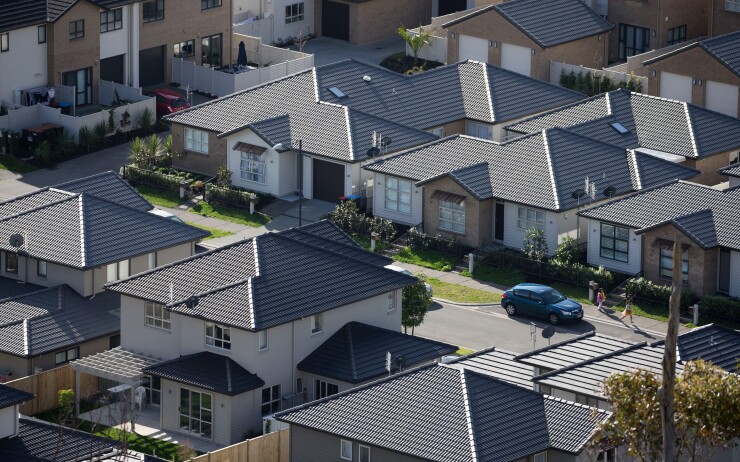
Founded in 2017, Hometap has developed a digital platform that it uses to invest in property alongside homeowners, offering cash in exchange for a share of their home's future value. No monthly payments are taken from the homeowner over the life of the investment.
HTAP 2024-1 is the first securitization issue from Hometap, but the company intends to "establish a regular issuance cadence", Hometap's co-founder and CEO Jeffrey Glass said in a statement. The deal, which closed on June 27, 2024, drew support from 17 unique investors, including six participating in the asset class for the first time, Hometap's head of structured finance Cara Newman said in the same statement. According to Hometap, in recent years, the home equity investment (HEI) industry has experienced substantial growth.
HTAP 2024-1 featured a Morningstar DBRS BBB-rated $146 million Class A tranche (32.9% credit enhancement), a BBB (low)-rated $13 million Class B tranche (27% credit enhancement), and $58.7 million Class C notes (0% credit enhancement) that were not rated. The $159.1 million offered through the Class A and B notes benefits from senior/subordinate credit enhancement, DBRS says.
The notes don't pay a coupon, and the return depends on property value performance, DBRS said.
The maturity date of each class of notes is the payment date occurring in April 2037. The actual final payment date may be substantially earlier than such date.
HEIs, also known as shared appreciation agreements, are available to homeowners of any age, unlike reverse mortgage loans, which often have a minimum age requirement. A homeowner receives an upfront cash payment (an advance or an investment amount) in exchange for giving an investor (i.e., an originator) a stake in their property. The homeowner retains sole right of occupancy of the property and pays all upkeep and expenses during the term of the HEI, but the originator earns an investment return based on the future value of the property, typically subject to a returns cap.
A reverse mortgage is so named because the direction of its cash flow is in the reverse order of a regular mortgage. For a regular mortgage, the lender makes the loan to a borrower at an interest rate and a maturity term and expects the borrower to repay the loan through monthly mortgage payments. By contrast, for a reverse mortgage, the lender makes a loan to an elderly home owner at an interest rate but does not expect the loan to be repaid until the borrower has either died, moved out of the house permanently (mostly for health reasons to a nursing home), or sold the house. During the period when the mortgage is outstanding, the borrower has no monthly-payment obligation. In fact, depending on the design of the reverse mortgage, during the mortgage's outstanding period the lender may actually make a monthly payment to the borrower.
Like reverse mortgage loans, the HEI underwriting approach is asset-based, meaning there is greater emphasis placed on the value of the underlying property and the amount of home equity than on the credit quality of the homeowner.
The collateral for HTAP 2024-1 consists of 1,506 non-recourse HEI agreements totaling $217.82 million, secured by first, second, or third liens on properties. Primary residences accounted for 92.63% of these, investment properties for 6.05%, and vacation properties for 1.32%. All of the contracts in the asset pool were originated between 2021 and 2023; of these 7.79% are first lien contracts, 73.84% second-lien, and the remaining 18.36% are third-lien contracts, DBRS said.
Initial purchasers of the securities were Barclays Capital and Jeffries. The owner trustee, indenture trustee and custodian is Wilmington Savings Fund Society, the servicer Hometap Equity Partners, and the backup servicer is Servis One.
The Hometap contracts in the pool have 10-year terms, but the mechanics of what transpires when a contract reaches its stated maturity date is somewhat unproven in the market, DBRS says.





